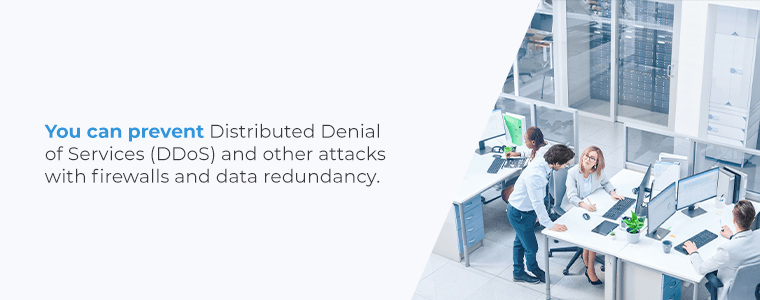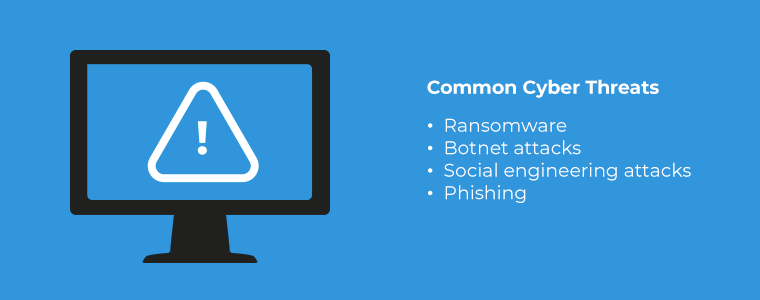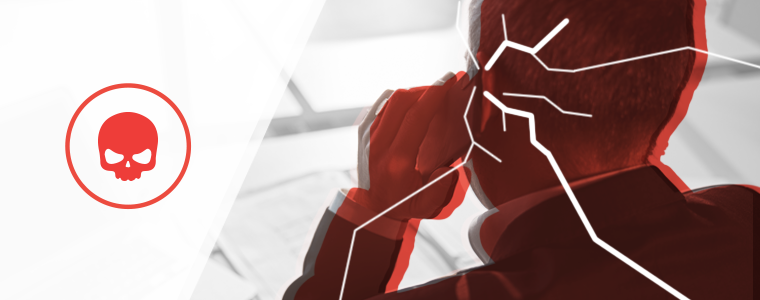What Is Cybersecurity & Why Is it Important?
Cybersecurity protects your data, computer systems, networks, and people from threats. Bad actors will find any way to get into your system, though you can thwart them with a robust cybersecurity program.
Why Is Cybersecurity Important?
Cyberattacks are becoming more common in every industry. With more advanced data and systems come more significant threats. These threats can cost your business an extensive amount of money in physical and reputational damages.
The Confidentiality, Integrity, and Availability (CIA) Triad
The CIA triad can help you create a reliable cybersecurity network for your business. Protect your data by focusing on the following factors:
- Confidentiality: Unauthorized access to private information breaches confidentiality, often exposed through poor encryption methods. You can prevent these attacks with two-factor authentication and reliable encryption services.
- Integrity: Modification of data by an unauthorized individual compromises your network’s integrity. Stop these attacks with things like constant power supplies and consistent data backups.
- Availability: Only authorized individuals should be allowed to access your firm’s data. You can prevent Distributed Denial of Services (DDoS) and other attacks with firewalls and data redundancy.

Fundamentals of Cybersecurity
To implement a comprehensive program, you should understand cybersecurity basics. Focus on the following areas outlined in our Brilliance in the Basics to prevent cyber threats:
- Turn on multi-factor authentication (MFA): MFA has all users complete two or more steps to confirm their identity when logging into a device or network. Enhance MFA by requiring strong passwords.
- Adhere to the Center for Internet Security benchmarks: Guidelines from this industry authority allow you to create secure configurations.
- Give permissions only to those who need it: Only people who need admin rights should have them. Follow the principle of least privilege to determine which employees need admin rights.
- Train employees on cybersecurity: Users should know the signs of an attack and how to avoid and report them.
- Update software and systems regularly: Devices and software should be up-to-date at all times. Prompt patches are one way to stay updated.
- Host incident response exercises: Preparation for likely and potential incidents is crucial to your cybersecurity program.
Common Cyber Threats
Cyber threats come in all shapes and sizes. The most common often include:
- Ransomware: Malware encrypts your data in exchange for ransom.
- Botnet attacks: Hackers control internet-connected devices to steal data, access confidential information, and more.
- Social engineering attacks: Attackers invoke strong emotions to get employees to provide unauthorized information.
- Phishing: Bad actors send email or text messages embedded with corrupt links or other methods to steal data.

Get Reliable Cybersecurity From Agio
We offer numerous services to help you protect all of the critical and sensitive information in your firm. Click here to learn more about the cybersecurity programs we offer.
Share post
Featured Posts
Connect with us.
Need a solution? Want to partner with us? Please complete the fields below to connect with a member of our team.



